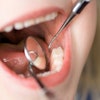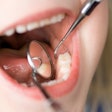
NEW YORK (Reuters Health), Jul 23 - Children with squamous cell carcinoma (SCC) of the tongue should receive the same treatment as adult patients, researchers suggest.
"The preponderance of case reports of aggressive disease and poor outcome in pediatric patients is not an accurate reflection of true outcomes," the researchers say in the July issue of Archives of Otolaryngology Head & Neck Surgery.
After adjustment for disease stage, tobacco exposure, and treatment modality, children and adults with SCC of the oral surface of the tongue had the same outcomes, according to the article.
Head and neck SCC comprises about 4% of all malignancies in the U.S. but is uncommon in young patients and rare in children. When it does occur in young patients, the oral surface of the tongue is the most common site.
Previous isolated case reports in children presented conflicting conclusions regarding disease severity and prognosis. Now Dr. Ian Ganly, from Memorial Sloan-Kettering Cancer Center in New York, and colleagues have described a series of 10 pediatric patients, ages 15 to 20 years, with SCC of the oral tongue and 40 adult patients matched with the younger group for sex, smoking history, disease status, and treatment procedure.
The 5-year overall survival rate was 70% in the pediatric group and 64% in the adult group (hazard ratio 0.97, p = 0.97). The 5-year disease-specific survival was 80% in the younger group and 76% in the adults (HR 1.11, p = 0.90). The 5-year recurrence-free survival rate was also similar: 70% in the children and 78% in the adults (HR 1.50, p = 0.54).
These similar outcomes indicate that adults and children should be treated the same way, said Dr. Ganly. "Future studies on children should focus on possible genetic markers that may predispose them to this type of cancer," he added.
He and his colleagues noted in their report that only one of the young people in this series had a genetic syndrome related to the development of cancer (Fanconi syndrome).
By Victoria Stern
Source: link.reuters.com/wyt98m
Arch Otolaryngol Head Neck Surg 2010;136:697-701.
Last Updated: 2010-07-22 19:30:22 -0400 (Reuters Health)
Copyright © 2010 Reuters Limited. All rights reserved. Republication or redistribution of Reuters content, including by framing or similar means, is expressly prohibited without the prior written consent of Reuters. Reuters shall not be liable for any errors or delays in the content, or for any actions taken in reliance thereon. Reuters and the Reuters sphere logo are registered trademarks and trademarks of the Reuters group of companies around the world.



















